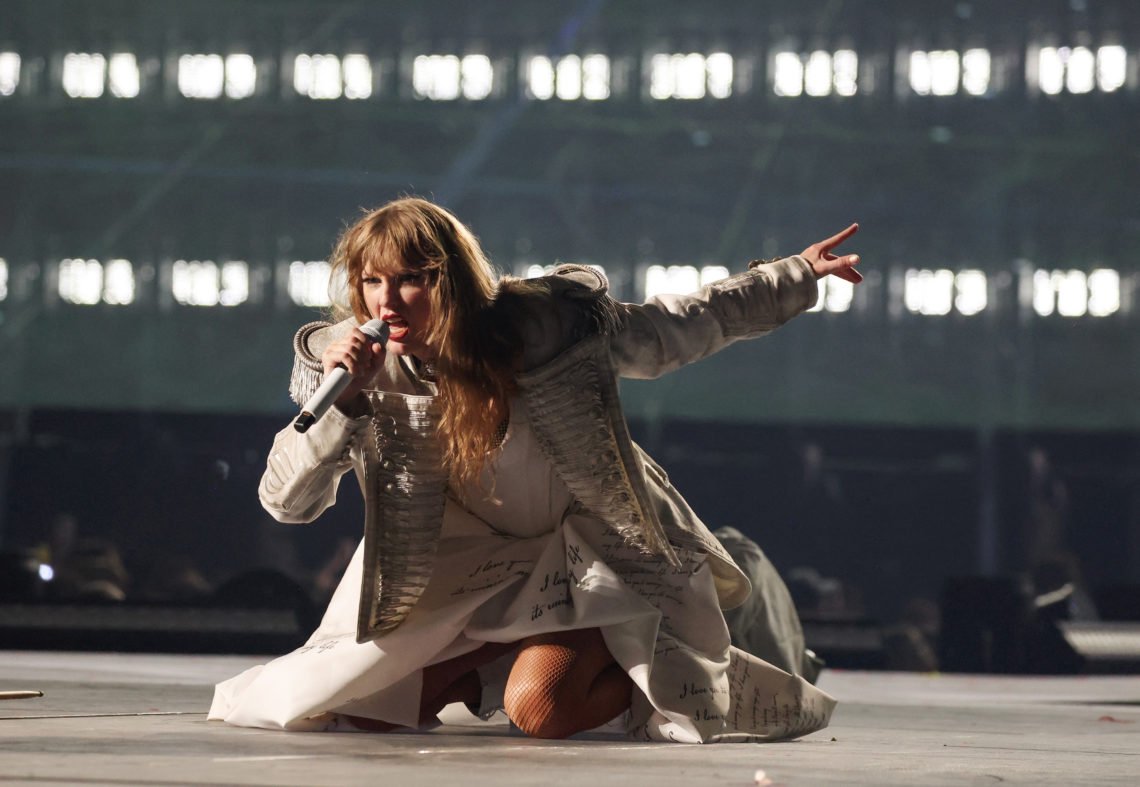'The Tortured Poets Department' Review
In the past few years, Taylor Swift has gone bigger and better with every new release she puts out. With folklore and evermore released just months apart, Midnights with a special 3 AM Edition with seven additional songs, and, penultimately, The Tortured Poets Department with The Anthology, adding up to thirty-one songs released in one night, Swift proves she is a prolific songwriter. All of this, of course, comes on top of Swift’s record-breaking Eras Tour. But when does it become too much?
Because of the cult following she has amassed, Swift attempts to appease her fans with a massive output of content, whether through the Eras Tour, merchandise, or new albums. I mean, a three-and-a-half-hour tour isn’t just done for fun– it is done for the fans, who are willing to spend thousands of dollars to watch Taylor Swift belt all of her best hits. But there is no way to keep getting bigger without, at some point, hitting carrying capacity and seeing her star begin to wane. 2023, according to Time Magazine, was the year of Taylor. I mean, teenage girls (me included) started watching football because she went to a couple of games. When she moves, the masses move, which was made abundantly clear by the reaction to The Tortured Poets Department.
There is no denying that The Tortured Poets Department is the biggest release of Swift’s career. According to Luminate, it became the most streamed album in a week with 799 million streams across platforms, surpassing Drake’s record of 745.92 million with Scorpion. But while it might be a smashing success, do the fans actually enjoy the album?
Drawing on Swift’s past work, it is evident that she knows how to write a good song, but she might have flown too close to the sun. Thirty-one songs is a lot, and there seems to be a lack of quality control present with this album. Even with the stunning production quality of Jack Antonoff and Aaron Dessner and Swift’s haunting lyricism and vocals, something is missing from The Tortured Poets Department– depth. I found myself listening to the songs, wishing Swift would go somewhere with the one-liner heartfelt lyrics that are ultimately lost amid the rest of the empty lyrics. I mean, how does an award-winning lyricist come up with “I might just not get up / I might stay down bad”? While this is not true of the entire album, it is true for most of it– the few redeemable songs are those where Swift is at her most vulnerable.
Specifically in “The Smallest Man Who Ever Lived,” Swift’s modern terminology breaks the genuine, raw feel of the song. In the bridge, Swift reveals the questions she always wanted to ask this man who broke her heart, already relating to the masses with the familiar feeling of heartbreak and betrayal: “Were you sent by someone / Who wanted me dead? / Did you sleep with a gun underneath our bed?” But Swift’s artful lyricism can only go so far, and the song ends up falling flat with its “trendy” terminology as a way to relate her music to the present. But the thing is, Swift has never needed to be “trendy.” She makes the trends. She does not need to adhere to the expectations set because she has proved again and again that she can and will exceed those. In the first few seconds of the song, Swift sings, “You tried to buy some pills / From a friend of friends of mine / They just ghosted you / Now you know what it feels like.” This reference to the modern art of “ghosting” seems like an unnecessary attempt at connecting with her young audience.
With The Tortured Poets Department and its subsequent Anthology, Swift is simply trying too hard, and that is the critical point of failure with this album. She sees the expectations of the fans, but instead of trying to live up to them, Swift attempts to exceed them, ending up with an excessive amount of songs that only scratch the surface of her talent.
By Caroline Lackey

